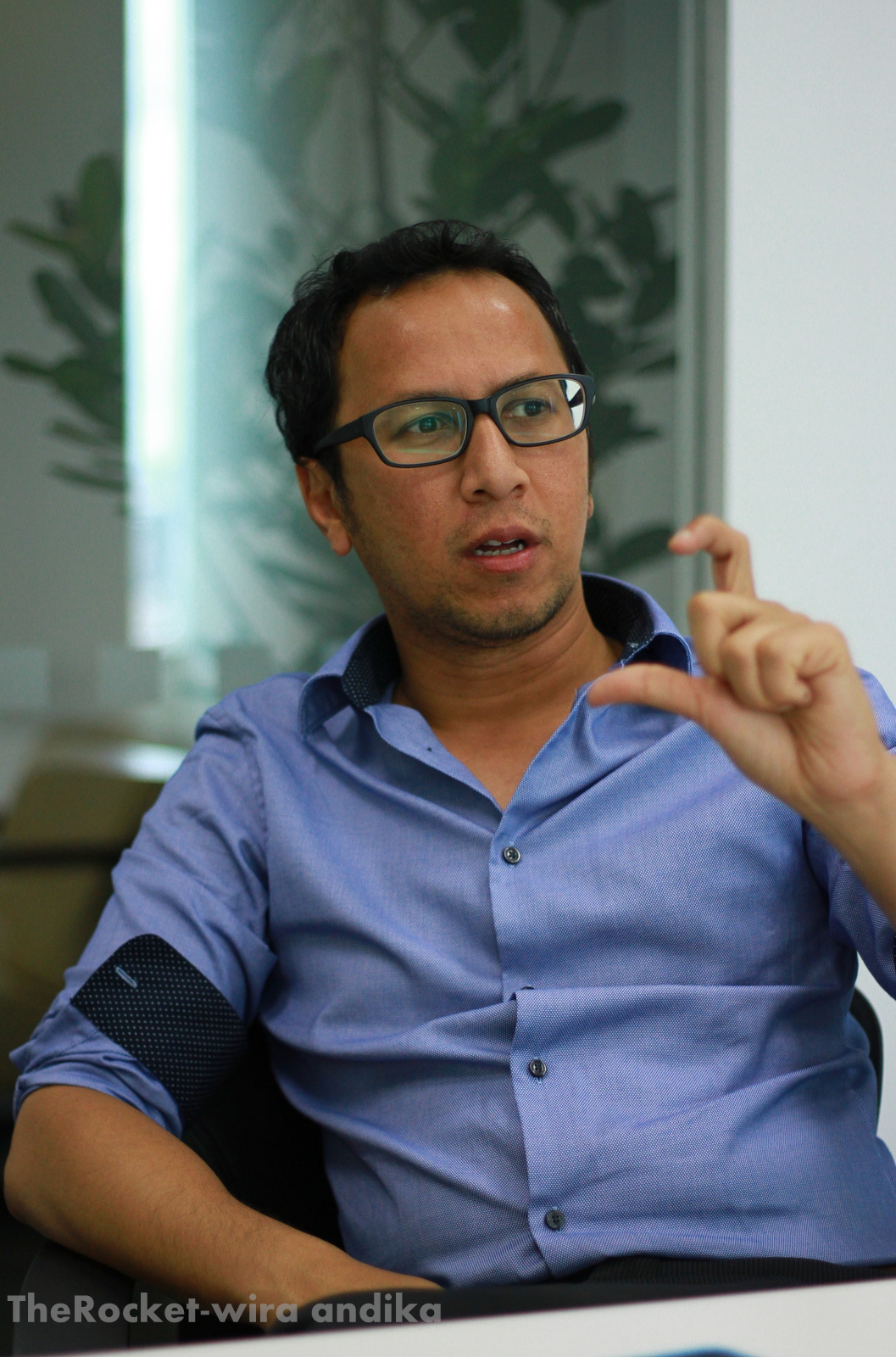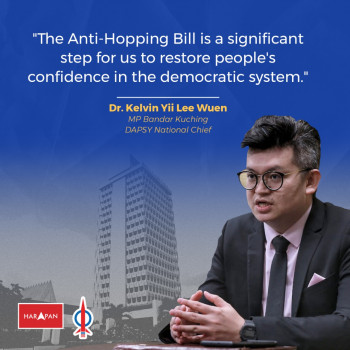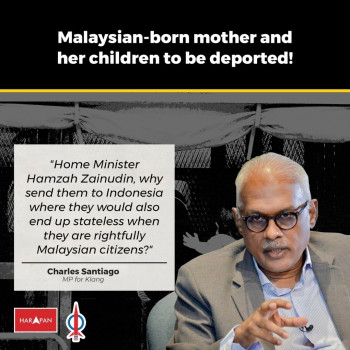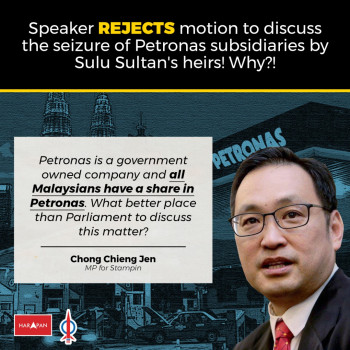By Pauline Wong
“Only the Chinese are rich.” “The Malays are all cronies.” “Indians are estate workers.”
These words are often heard when the narrative is that race is the sole determining factor in social class and wealth; where conversations of economic opportunities and power revolve around ethnicity as their defining parameters, a fact that has acted as something divisive, rather than inclusive.
In a 2013 survey conducted by the National Civics Bureau (Biro Tatanegara), which was highlighted by Gerakan’s Dominic Lau, it appears the discussion of race continue to divide, not unite.
The survey among some 200 government servants and academicians revealed that both races felt victimised by the other on eight points, many of which are economic.
The Chinese feel shut out from government jobs and aid, face religious persecution, feel oppressed, and therefore are forced to unite to help one another; while the Malays want more government help as they feel their status as landowners and special rights are being constantly undermined.
From issues like the 30% bumiputera equity to government jobs and contracts, the wedge has grown even further since, with every ethnic group feeling victimised by the other.
The statistics seem to strengthen this notion that the Chinese are richer, if not richest.
Figures from the National Household Income Survey 2012 show only 7.4% of Malay households earn more than RM10,000 while double that — 15.4% — of Chinese earn above RM10,000.
Malays make up more of those earning below RM2,000, although those earning between RM3,000 and RM6,000 do not differ much between races.
The black, white and greys in-between
However, these statistics merely brush the surface of identifying the wealth disparity between ethnic groups, providing a black-and-white reading of statistics without considering the grey nuances between.
Dr Muhammed Abdul Khalid, formerly a senior analyst at Isis Malaysia and a research fellow at Universiti Kebangsaan Malaysia, addresses the grey areas head-on.
“People think that all Chinese are rich and run businesses; that’s not true. Over 70% of the Chinese community are wage earners, almost the same as Malays, Indians slightly higher at about 80%. The median (not average) wage of the Chinese in the private sector is about RM2,000 a month, the Malays are about RM1,600,” he says, based on Khazanah Research Institute’s State of Malaysian Households report.
“This means that across the board, almost 50% of all ethnicities earn below RM2,000 — and when you see the small proportion of Chinese running a business, you will see the gap is wider. Across all ethnicities you find that there is a big gap in wealth between the top 10% and the bottom 40%, and the Chinese have the biggest gap,” he adds.
“This inequality within each community is missing from the debate, which I think is very very important. Because while disparity is seen within the different ethnic groups, more importantly it exists within each group.
Muhammed, who has written a book titled: “The Colour of Inequality”, said that even if policies are created to address wealth gaps between ethnic groups, it does not mean inequality will be zero.
“Putting this into context; even if for every RM1 a Chinese earns on average, a Malay and Indian also will earn RM1, will inequality be zero? No, because within each ethnic group, there will be inequality where some rich among the ethnic group will have more, despite what the average is, and this has to be addressed.” he adds.
Slicing across all ethnic groups, how many of us earn RM10,000 and above? Muhammed asks.
“You will find the proportions are almost the same. When you draw the chart of income levels, a bulk of us fall below RM10,000, regardless of race. So why are we fighting among ourselves on issues of race and wealth here —,” and he circles the low-income section on a simple chart he has drawn out —“When the fight is there, at the high income levels?”
Political capture, and ‘policies for the rich, by the rich’
“That is where the political capture is; the wealth and power are captured at the high income,” he adds.
Political capture, sometimes known as state or regulatory capture, is defined by the ‘capture’ of policy making by certain groups or individuals with vested, high-stake interests in an outcome of a policy, and can be expected to focus their resources and energies in attempting to influence or gain the outcome they prefer.
This creates an imbalance, and oftentimes the public — with little stake in the outcome of policy — will be ignored. The manifestation of political capture is rent-seeking, and to an extent, cronyism. To put it bluntly, ‘policies made by the rich, for the rich.’
This is where the debate must take place, Muhammed says.
“We talk about extremism in race and religion but not in the economic sphere, which is to me is much more important, because if you control the economic sphere, you control the political process.
“We cannot just handle extremism on one side without thinking of the economy — extremism here does not only translate to violence, but the extremism is in the capturing the spoils of economic benefits; and this is something absolutely crucial in the conversation of unity and harmony,” he says.
What is the imperative and importance of moving the national conversation from one of race, to one that more directly addresses issues of a growing class divide?
“You can see in other countries almost homogeneously, that with large income gaps — we’ve seen the Arab Spring, the London riots, in the United States in the aftermath of Ferguson — there will be less growth.
“Second, there are studies that show that the resultant political capture which benefit the rich and not the rest; policies which favour the rich such as no minimum wages, weak unions, rent seeking and such,” he says.
Although the minimum wage is supposed to be enforced in Malaysia, it has seen a sluggish response as small-to-medium enterprises claim minimum wages would cut into profits and affect their businesses.
After much pressuring from the SMEs, foreign workers were exempt from minimum wages, which bodes ill for Malaysian workers as the job market is then unfairly retarded. After all, foreign workers are cheaper, and more willing to work the 4D jobs: dirty, dangerous, dull and demeaning.
“Studies in the UK also show that income and class gaps mentally and physically retard the growth of a nation. Huge inequalities lead to health and social consequences. People die younger, have less upward mobility.
“This is even more important for our country because we are multi-racial,” he adds.
It’s all about politics
The elephant in the room, however, is that we talk about race instead of class because it is the nature of our politics.
“The only reason why we focus on race and not class is because of politics. If we had more class-based politics then we wouldn’t see so much on the race debate.
So how do we move the national conversation to the direction we want it to?
“First, you need to separate myth from reality. We always think one ethnic group is rich, another is poor, we think Chinese are rich, Malays are in the middle, and Indians are poor — which is not true! Yeah so maybe it’s not sexy, to talk about, and people will accuse you of being a socialist, but we have to separate myth from realities — it’s down to class.
Other myths he says are things like “Malays are mostly in government sector.”
“The civil service is 1.3 million. While Malays make up a large proportion of the civil service, the opposite is not true. Then the myth that race-based policies do not work to reduce the gap: if the government were to introduce the equivalent of the Amanah Saham to non-Malays, that is a race-based policy,” he adds.
Muhammed says the people need to ask: who makes policies?
“We talk economic terms, but there is also huge inequality in policy making. When you talk about fuel subsidies for example, who really benefits? Does it benefit the people in oil-producing states like Kelantan, Sabah and Sarawak? If you don’t own a car, you don’t benefit from fuel subsidies,” he says.
“This is also important and it is a consequence in inequality in policies that are made by the rich, or urban-centric. We talk about high-speed rail (to Singapore) spend how many billions, but who benefits? Sabah and Sarawak are not going to benefit from this project, which is funded by public money.
“It is all about inclusiveness in policy-making,” Muhammed concludes.





